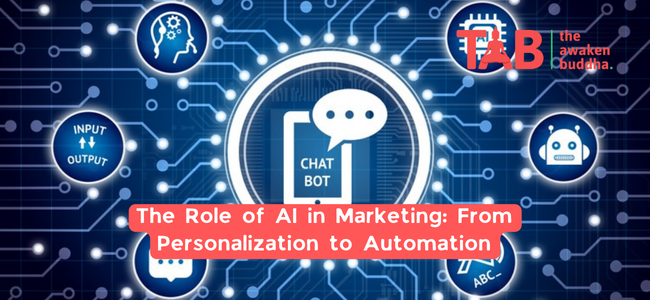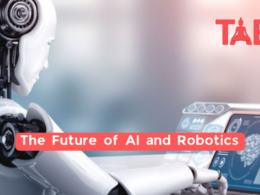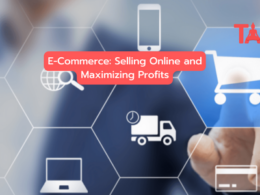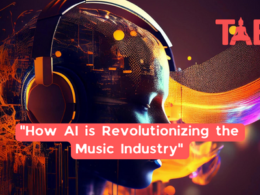Artificial intelligence (AI) has recently transformed the marketing industry by enabling businesses to gain insights into customer behavior, personalize content, and automate marketing campaigns. From chatbots to predictive analytics, AI has transformed how marketers work, increasing efficiency and enhancing the customer experience. This report will explore how AI is changing marketing and its benefits to businesses.
Understanding AI in Marketing
AI is the ability of computer systems to perform tasks that commonly require human intelligence, such as learning, reasoning, and problem-solving. In marketing, AI can help businesses analyze data, predict customer behavior, and optimize marketing campaigns. AI is often used with machine learning, which allows computer systems to learn and improve from experience without being explicitly programmed automatically.
Personalization with AI
Personalization is a critical aspect of modern marketing, and AI has enabled businesses to take personalization to the next level. With AI-powered customer segmentation, businesses can group customers based on their behavior and interests, allowing them to deliver personalized content and offers more likely to resonate with customers. AI can also analyze customer data to predict their future behavior, allowing businesses to provide personalized recommendations and offers in real-time.
Chatbots and AI-Powered Customer Service
Chatbots are becoming increasingly popular in marketing, with businesses using them to provide 24/7 customer support, answer common questions, and even complete transactions. AI-powered chatbots can provide personalized responses based on the customer’s past behavior, making the experience more engaging and efficient. By using chatbots, businesses can save time and resources while still providing high-quality customer service.
AI and Marketing Automation
Marketing automation involves using technology to automate repetitive marketing tasks, such as email campaigns and social media posts. With AI, businesses can take marketing automation to the next level, allowing them to create personalized and relevant campaigns tailored to each customer’s behavior and interests. AI can also help businesses optimize their campaigns, providing insights into what works and doesn’t.
Predictive Analytics with AI

Predictive analytics involves using data, statistical algorithms, and machine learning techniques to identify the likelihood of future outcomes based on historical data. With AI, businesses can explore vast amounts of customer data to predict future behavior, such as the likelihood of a customer creating a purchase or canceling a subscription. This enables businesses to retain customers and improve the customer experience proactively.
The Benefits of AI in Marketing
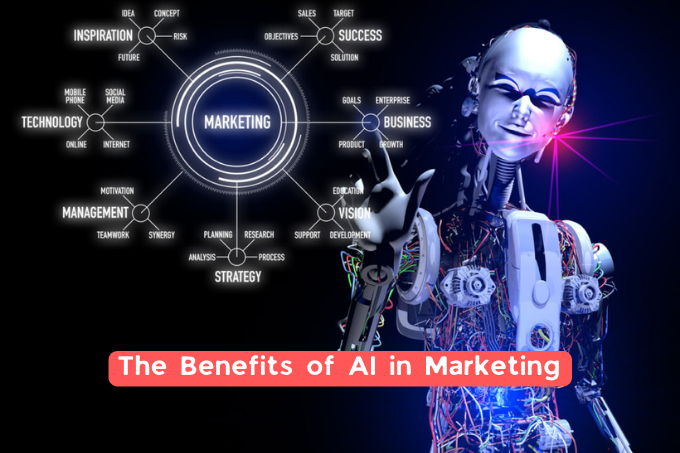
AI’s benefits in marketing include increased efficiency, improved customer experience, and higher ROI. By automating repetitive tasks, businesses can save time and resources, allowing them to focus on more strategic initiatives. AI-powered personalization can improve the customer experience, leading to higher engagement and customer satisfaction. And with predictive analytics, businesses can make data-driven decisions more likely to lead to positive outcomes.
Conclusion
AI is transforming the marketing industry, enabling businesses to gain insights into customer behavior, personalize content, and automate marketing campaigns. By using AI, businesses can increase efficiency, improve the customer experience, and drive higher ROI. As AI continues to evolve, we can desire to see even more innovations in the marketing space, enabling businesses to stay ahead of the curve and drive tremendous success.
AI plays an increasingly vital role in the marketing industry, enabling businesses to automate repetitive tasks, personalize content, and gain insights into customer behavior. From chatbots to predictive analytics, AI transforms how marketers work, making them more efficient and enhancing the customer experience. As AI continues to evolve, we can desire to see even more innovations in the marketing space, enabling businesses to stay ahead of the curve and drive tremendous success.
FAQs
What is AI in marketing, and how is it used?
AI in marketing involves using computer systems to perform tasks commonly requiring human intelligence, such as learning, reasoning, and problem-solving. AI is used in marketing to gain insights into customer behavior, personalize content, and automate marketing campaigns.
What are some examples of AI in marketing?
Examples of AI in marketing include personalized recommendations, chatbots for customer service, predictive analytics, and marketing automation.
How does AI-powered personalization improve the customer experience?
AI-powered personalization allows businesses to deliver personalized content and offers more likely to resonate with customers based on their behavior and interests. This leads to a more engaging and relevant customer experience.
What are the advantages of using chatbots in marketing?
Using chatbots in marketing can save businesses time and resources by providing 24/7 customer support, answering common questions, and even completing transactions. AI-powered chatbots can also provide personalized responses based on the customer’s past behavior, making the experience more engaging and efficient.
How can businesses use predictive analytics with AI to improve their marketing campaigns?
By exploring vast amounts of customer data, businesses can use predictive analytics with AI to identify the likelihood of future outcomes, such as a customer making a purchase or canceling a subscription. This enables businesses to proactively retain customers and improve the customer experience, leading to higher ROI.






